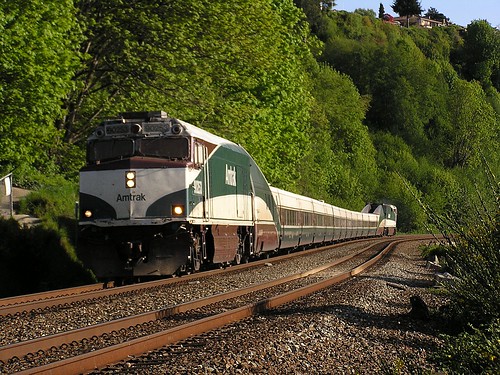Burning the Midnight Oil for Living Energy Independence
 Freakonomist Eric Morris finishes up his tag-team attack with Ed Glaeser on the HSR policy with a post that confesses to the hack jobs both are doing on HSR policy – but works hard to spin the confession into a defense of the hackery.
Freakonomist Eric Morris finishes up his tag-team attack with Ed Glaeser on the HSR policy with a post that confesses to the hack jobs both are doing on HSR policy – but works hard to spin the confession into a defense of the hackery.
Eric Morris’s efforts have been clearly the weaker of the two, to the point where Ryan Avent, who wrote blog posts to pick apart the analytical flaws of Ed Glaeser’s four part series as well as the first posts by Eric Morris, responded to Eric Morris’ last effort via twitter:
@ryanavent: Eric Morris closes HSR series by referring readers to Randal O’Toole. You know, in case you thought he and Glaeser were aiming for an honest critique
The main takeway point from below?
So the bait and switch is as follows. By overstating the costs and understating the benefits of Express HSR, “it costs too much”, or is only useful in a very few special cases, and therefore we cannot afford its “transformative benefits”. And by ignoring the fact that the benefit of investing in Emerging HSR is greater than the cost, and focusing on dismissing the quality of the benefits, the Emerging HSR is “unworthy” of investment because it is not “transformative” enough.

 On Agent Orange,
On Agent Orange,  Betwixt and Between, I find myself. I observe the validity of D00m.P0rn shrill warnings about the future … when seen as possible outcomes rather than when seen as certainties. Yet I also see the potential for better outcomes.
Betwixt and Between, I find myself. I observe the validity of D00m.P0rn shrill warnings about the future … when seen as possible outcomes rather than when seen as certainties. Yet I also see the potential for better outcomes. As
As